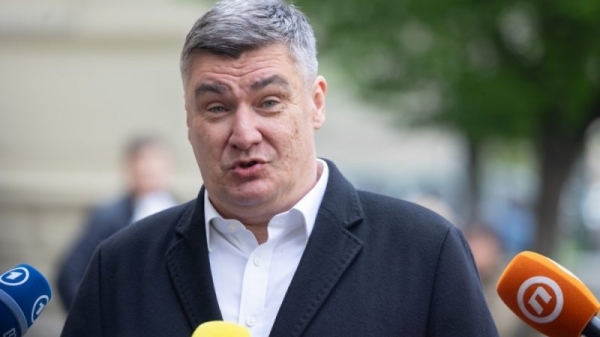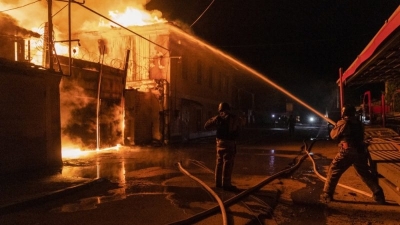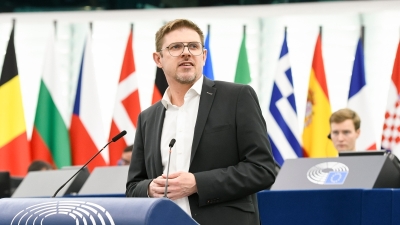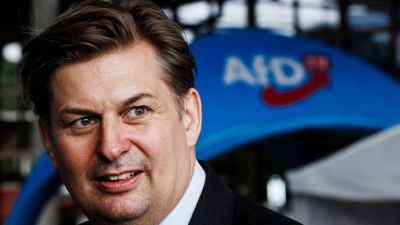Croatia’s top court bars President Milanović from PM post

Croatia’s Constitutional Court ruled on Friday (19 April) that President Zoran Milanović cannot take up the more powerful position of prime minister after this week’s elections, saying the firebrand leader could not head any potential coalition.
Hours later, Milanović dismissed the court´s ruling, saying parliament was the only institution that could decide who will be prime minister – though he did not spell out how he planned to challenge the decision of the country’s top tribunal.
The president has accused the court of being biased in favour of his rivals in the ruling conservative Croatian Democratic Union (HDZ) party. He has also often criticised the EU and NATO and opposed helping Ukraine in its war with Russia.
The HDZ, led by current Prime Minister Andrej Plenković won Wednesday’s election with 61 seats but without securing a parliamentary majority, triggering negotiations among various parties to form a governing coalition.

Ruling conservatives win most seats in Croatia election, but no majority
Croatia’s ruling conservative party won the most seats in a parliamentary election Wednesday (17 April) but not enough to form a government, according to almost complete official results, with tough talks ahead to gather a majority.
A coalition led by Milanović’s opposition Social Democratic Party (SDP) came second with 42 seats. The result made it unlikely that Milanović would become head of the government, but the court said on Friday he could not do so even if he managed to find enough support among smaller parties.
The far-right Homeland Movement took third place with 14 seats, potentially giving it a decisive role in getting the HDZ over the line.
The court, which has the last word on constitutional matters, said Milanović had failed to adhere to a March court warning that he should resign from the presidency before campaigning for the prime ministerial post again.
“By his statements and behaviour the President of the Republic … has put himself in a position where he can neither be a mandate holder for the composition of the future government nor the Prime Minister,” the court said.
Milanović held a press conference soon after and said the priority was for parties to form a parliament and then negotiate who would lead the government.
“This is a sovereign will of the parliament, not of the Constitutional Court,” Milanović told a news conference. “They can say whatever they want but they cannot do anything.”
Milanović dissolved parliament on 18 March, triggering this week’s snap election, and said he would run for prime minister and resign only after winning the polls. The Constitutional Court said at the time he must resign first.
Croatia has a parliamentary democracy in which the prime minister and his cabinet set all major policies. The president is empowered to nominate the prime minister based on election results, can dissolve parliament and acts as armed forces chief with some say in foreign policy.
Final results in the election are not expected until next week because a re-run is needed in two polling stations after irregularities were recorded.
Read more with Euractiv




